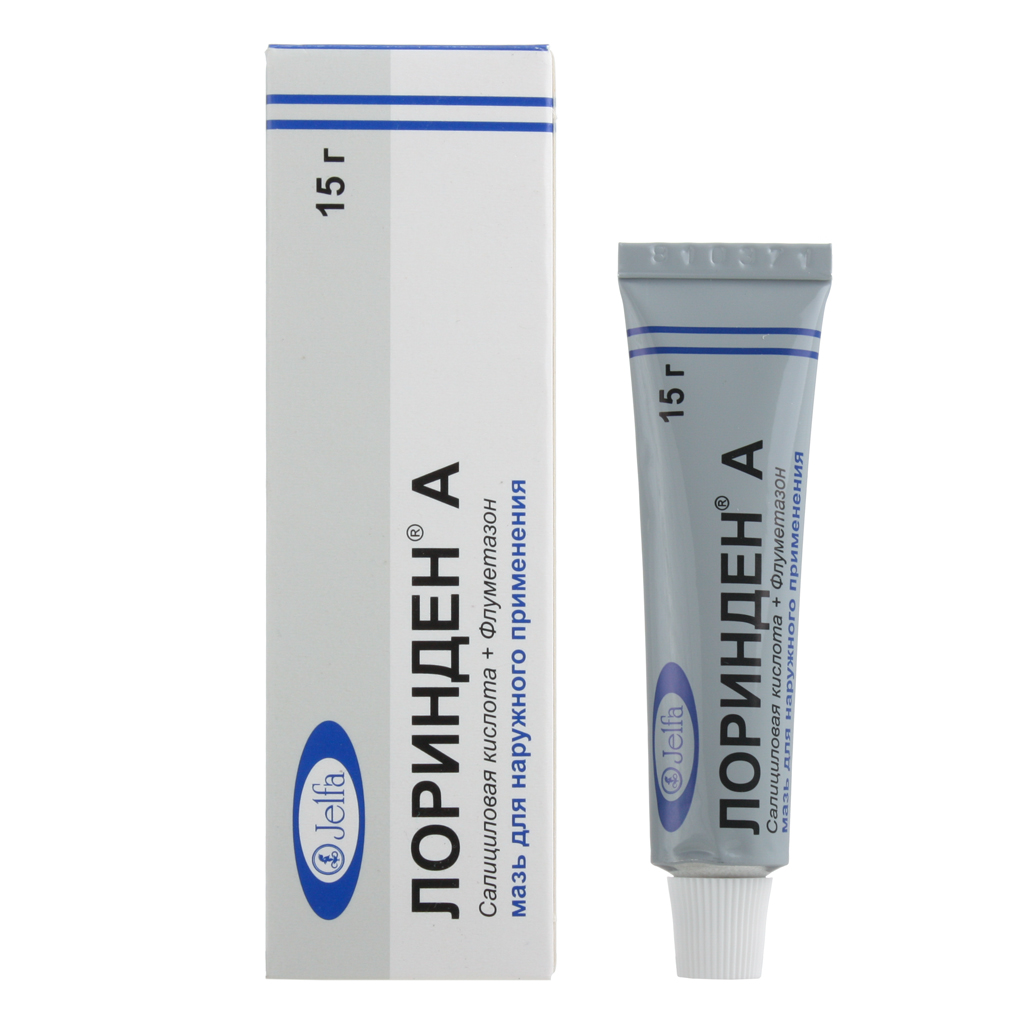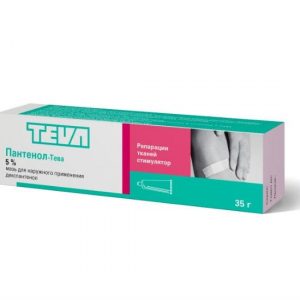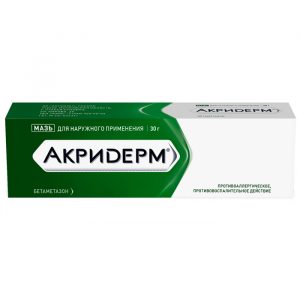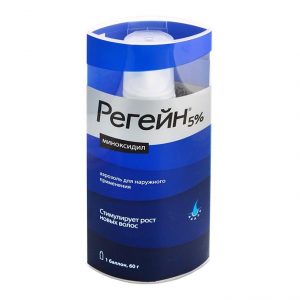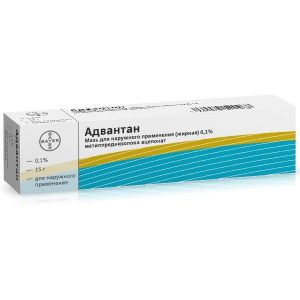Description
Latin name
Lorinden A
Release form
Ointment.
Packaging
In an aluminum tube 15 g of ointment. In the package 1 tube.
Pharmacological action
Lorinden A is a combined preparation with anti-inflammatory and keratolytic action for external use.
Flumethasone pivalate is a synthetic GCS that has anti-inflammatory, decongestant, anti-allergic, antipruritic effect. It inhibits the activity of phospholipase A 2, which leads to the suppression of the synthesis of prostaglandins and leukotrienes, inhibits the release of inflammatory mediators. It inhibits the migration of leukocytes and lymphocytes into the focus of inflammation. Prevents marginal accumulation of neutrophils, which leads to a decrease in inflammatory exudate, production of cytokines and inhibition of macrophage migration, as a result of which the processes of infiltration and granulation are reduced. It inhibits the proteolytic activity of tissue kinins, inhibits the growth of fibroblasts, and prevents the development of connective tissue in the focus of inflammation. Reduces hyperemia, manifestations of hypersensitivity reactions, proliferative and exudative processes, flowing in the connective tissue at the site of inflammation.
Salicylic acid – NSAIDs, promotes the penetration of corticosteroids and gives the drug an additional antiparakeratous, moderate keratolytic and local hypothermic property, promotes the penetration of flumetasone into the skin. In addition, it has antibacterial and fungicidal effects, and also restores the protective function of the skin. Suppresses the secretion of sebaceous and sweat glands.
Indications
– Acute and chronic allergic dermatoses, especially accompanied by excessive keratinization of the skin: – Atopic dermatitis.
– Diffuse neurodermatitis.
– Chronic lichen Vidal.
– Various forms of subacute and chronic eczema (especially horny).
– Hyperkeratosis (e.g., ichthyosis).
– Chronic dyshidrosis.
– Psoriasis.
– Seborrhea.
– lichen planus.
– Red warty lichen.
– As part of the combination therapy of bladder skin diseases (including bladder rashes on the skin of the hands and feet).
– Pruritus with severe lichenization.
– Photodermatitis.
– erythema multiforme exudative.
– Otitis externa.
– Discoid lupus erythematosus.
– Insect Bites.
Contraindications
– Bacterial skin diseases.
– Viral skin diseases (including chickenpox, shingles).
– Fungal skin diseases.
– Acute weeping and subacute exudative stages of skin diseases.
– Tuberculosis of the skin.
– Cutaneous manifestations of syphilis.
– Skin Neoplasms.
– Precancerous skin conditions.
– Vulgar and rosacea.
– Trophic leg ulcers associated with varicose veins.
– I trimester of pregnancy.
– Infants and young children.
– Hypersensitivity to the drug.
Use during pregnancy and lactation
The use of the drug in the first trimester of pregnancy is contraindicated.
The use of the drug during pregnancy is possible as an exception, in limited areas of the skin and only if the intended benefit to the mother outweighs the potential risk to the fetus.
The use of the drug during lactation (breastfeeding) is possible in exceptional cases, for a short time, on limited areas of the skin, the use of the drug on the skin of the mammary glands is contraindicated.
Composition of
1 g of ointment for external use contains:
Active substances: flumetasone pivalate 200 mcg, salicylic acid 30 mg.
Excipients: propylene glycol, anhydrous lanolin, white petrolatum.
Dosage and Administration
Externally.
Ointment is applied a thin layer on the skin in the affected area 2-3 times / day. After removing acute inflammation, the drug is used 1-2 times / day. After the complete disappearance of the painful manifestations, the treatment is carried out for another 3-4 days. In chronic skin lesions, treatment should not be continued for more than 3 weeks.
Ointment can also be used in the form of an occlusive dressing, which should be changed every 24-48 hours. In the treatment of lesions on dry and fat-free areas of the skin, characterized by severe infiltration, lichenization, desquamation and hyperkeratosis, as well as callosity, the degree of hydration can be adjusted using thickness the applied layer, in accordance with the therapeutic requirements specific to each individual case.
Side effects
Local reactions: possible – burning, itching, dry skin with prolonged use – skin atrophy, local hirsutism, telangiectasia, purpura, steroid acne, perioral dermatitis, pigmentation disorders.
Systemic reactions: with prolonged use, application to large areas of the skin and / or use of occlusive dressings, side effects characteristic of corticosteroids are possible. With the external use of the drug Lorinden A on the skin of the eyelids in the future, sometimes, cataracts or glaucoma may develop.
Drug Interaction
During treatment with the drug, it is contraindicated to carry out vaccination and immunization due to the immunosuppressive effect of the drug.
Should not be used in combination with other external preparations.
With systemic absorption of the drug GKS reduces the effect of insulin, oral hypoglycemic agents, antihypertensive drugs, anticoagulants, reduces the concentration of praziquantel in the serum.
Increases the risk of side effects combination of Lorinden A with the following medicines: androgens, estrogens, oral contraceptives, anabolic steroids (hirsutism, acne), antipsychotics, bucarban, azathioprine, cataracts, cataracts, cataracts, cataracts glaucoma), diuretics (hypokalemia), cardiac glycosides (digitalis intoxication).
Overdose
Symptoms: It is extremely rare to have systemic manifestations of ACS and / or symptoms of salicylate poisoning when used on very large areas of the skin.
Storage conditions
The drug should be stored at a temperature not exceeding 25 ° C.
Expiration
3 years.
s171products for pharmacy prescription
s38 prescription p79 and 79 prescription p79 vocational
dosage form
dosage form
ointment
Elf Farmzavod, Poland
